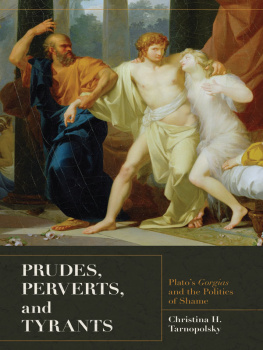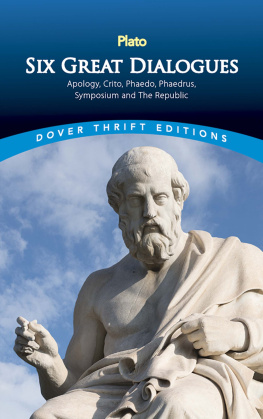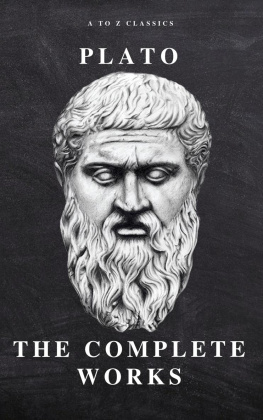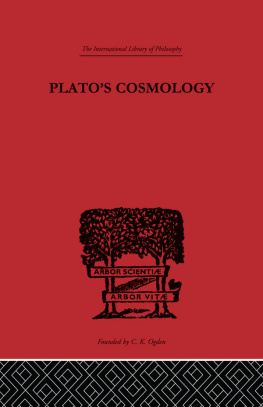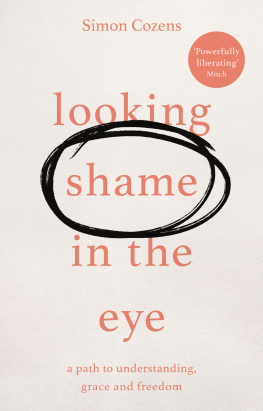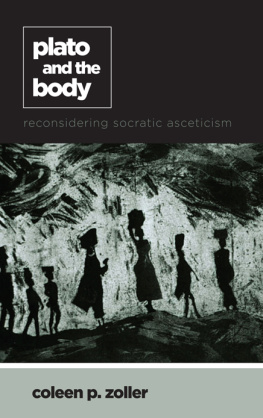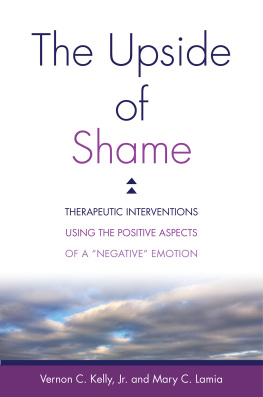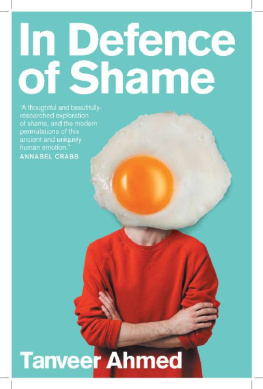
Prudes, Perverts, and Tyrants
Prudes, Perverts, and Tyrants
PLATOS GORGIAS AND THE POLITICS OF SHAME
Christina H. Tarnopolsky
PRINCETON UNIVERSITY PRESS
PRINCETON AND OXFORD
Copyright 2010 by Princeton University Press
Published by Princeton University Press, 41 William Street, Princeton, New Jersey 08540
In the United Kingdom: Princeton University Press, 6 Oxford Street, Woodstock, Oxfordshire
OX20 1TW
All Rights Reserved
Library of Congress Cataloging-in-Publication Data
Tarnopolsky, Christina H., 1964
Prudes, perverts, and tyrants : Platos Gorgias and the politics of shame / Christina H. Tarnopolsky.
p. cm.
Includes bibliographical references (p. ) and index.
ISBN 978-0-691-12856-6 (hardcover : alk. paper)
1. Plato. Gorgias. 2. ShamePolitical aspects. 3. DemocracyPhilosophy. I. Title.
B371.T37 2010
170dc22 2009028126
British Library Cataloging-in-Publication Data is available
This book has been composed in Minion Pro
Printed on acid-free paper.
press.princeton.edu
Printed in the United States of America
1 3 5 7 9 10 8 6 4 2
For My Family
CONTENTS
CHAPTER ONE
Shame and Rhetoric in Platos Gorgias |
CHAPTER TWO
Shaming Gorgias, Polus, and Callicles |
CHAPTER THREE
Plato on Shame in Democratic Athens |
CHAPTER FOUR
Socratic vs. Platonic Shame |
CHAPTER FIVE
Prudes, Perverts, and Tyrants: Plato and the Contemporary Politics of Shame and Civility |
CHAPTER SIX
Whats So Negative about the Negative Emotions? |
TABLES
ACKNOWLEDGMENTS
A FIRST BOOK all about shame should never happen to anyone, but because this one happened to me, I must thank the following people and institutions. It is to them that I owe most of the joyful and intellectually stimulating moments of this project.
First, I wish to thank Richard Schultz, Jacob Levy, and McGill University for providing me with course relief during the fall semester of 2008 in order to complete this manuscript. For providing a wonderfully fertile intellectual setting that greatly facilitated the completion of this manuscript, I thank all of my political theory colleagues at McGill University: Arash Abizadeh, Jacob Levy, Catherine Lu, Victor Muiz-Fraticelli, William Roberts, and Hasana Sharp. I thank the following undergraduate and graduate students who helped with the final research for this book: Liam Churchill, Leslie de Meulles, Virginia DiGaetano, Eli Friedland, Sohini Guha, Douglas Hanes, Warren Huard, D. Clifton Mark, Nina Valiquette Moreau, and Xiangzhen Wang. I am grateful for the financial support provided during my first years at McGill by a Standard Research Grant from the Social Sciences and Humanities Research Council of Canada.
I wish to thank my junior and senior colleagues, students and associates at Harvard University for all of the wonderful insights and helpful advice that they offered me during my years in the Department of Government and the Committee on Degrees in Social Studies. If I were to write down all of this advice, this section would be as long as Plutarchs Lives. I also wish to thank all of the students in my graduate seminars at Harvard and McGill for helping me to discover new insights about shame in the Gorgias.
I thank my following undergraduate professors and tutorial leaders who first turned me away from law school and toward the study of political philosophy: Clifford Orwin, Thomas Pangle, Michael Alexander, Rebecca Comay, Julian Patrick, Geoffrey Payzant, and David Leibowitz. Although none of them was directly involved in this project, they profoundly influenced the way I study texts. I thank Clifford Orwin for telling me that I should avoid exclamation marks at the end of my sentences unless I aspire to write comic strips.
The dissertation upon which this book is based was completed at the University of Chicago under the masterful guidance of Nathan Tarcov, Charles Larmore, Patchen Markell, Danielle Allen, and Gary Herrigel. Their extensive and insightful feedback on many countless drafts of my dissertation helped transform my inchoate thoughts on Plato and shame into a coherent philosophical project. I could always count on their comments and criticisms to discern the deepest philosophical issues I was dealing with, and to show me where I needed to think more deeply. I am also grateful for the financial support provided during and after graduate school by the University of Chicago, the John M. Olin Fellowship program, the Mellon Foundations Final-Year Dissertation program, and the Bradley Foundation Post-Doctoral Fellowship program.
A number of people have generously read various versions or portions of this book or shared conversations with me about ideas that influenced this book: Arash Abizadeh, Danielle Allen, Leah Bradshaw, Fonna Forman-Barzilai, Joseph Carens, Mary Dietz, J. Peter Euben, Michaele Ferguson, Leonard Ferry, Hawley Fogg-Davis, Jill Frank, Bryan Garsten, Lisa Guenther, Peter Gordon, Cheryl Hall, Gretchen Helmke, Andrew Hertzoff, Bonnie Honig, Robert Howse, Horst Hutter, Barbara Koziak, Sharon Krause, Rebecca Kingston, Jacob Levy, Jill Locke, Nancy Luxon, Catherine Lu, Harvey Mansfield, Patchen Markell, Sara Monoson, Glyn Morgan, Darra Mulderry, Jennifer Nedelsky, Davide Panagia, Lorraine Pangle, Andrew Rehfeld, William Roberts, Reuel Rogers, Nancy Rosenblum, Stephen Salkever, Arlene Saxonhouse, Hasana Sharp, Marlene Sokolon, Aleksandra Wagner, Lisa Wedeen, Stephen White, Shelley Wilcox, Iris Marion Young, Karen Zivi, and John Zumbrunnen. I owe Jill Frank, Catherine Lu, Sharon Krause, Gretchen Helmke and Hasana Sharp special thanks for encouraging me to continue with this project whenever I felt that my future was better suited to a life of violin making.
I have presented earlier versions or portions of my chapters to audiences at Concordia University, Northwestern University, Yale University, University of California at Berkeley, University of California at San Diego, University of Chicago, University of Toronto, as well as at meetings of the American Political Science Association, Canadian Political Science Association, and Midwest Political Science Association. All of these audiences provided extremely helpful feedback on my work.
Jill Frank, Melissa Lane, Nina Valiquette Moreau, one anonymous reviewer at Princeton University Press and one at Harvard University Press have read different versions of this manuscript in its entirety and offered extremely helpful advice and criticism. Eric MacGilvray, Will Kymlicka, and Ian Shapiro also read an earlier version of the manuscript and generously awarded it the Leo Strauss Award in 2004.
An earlier version of about the Negative Emotions? in Cabinet: A Quarterly of Art and Culture, Issue 31 (Fall 2008). Thanks to Sage Publications, the University of British Columbia Press, and Cabinet for permission to reprint this material.
At Princeton University Press, my terrific editor Ian Malcolms wisdom, sense of humor, patience, and encouragement sustained me throughout the entire publication process. I would like to thank Robert Dobbin for copyediting, David Luljak for help with the index , and I owe special thanks to Sara Lerner for the exceptional job she did as production editor.
All errors, misinterpretations, random non sequiturs and irrelevant observations are completely my responsibility. I can only hope that these are not the only unique contribution to Platonic scholarship to be found in these pages. I wish to thank my cat, Isaac, for being shameless and exemplifying the role of petty tyrant in our many daily non-interactions. I wish to thank the people who played the role of tyrant in my personal life because their behavior allowed me to experience the joys and horrors of interacting with this type of person just as I was formulating my thoughts about the Platonic tyrant. I wish to thank Rousseaus endnotes to his
Next page
